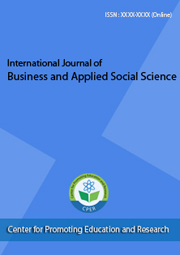Journal Menu
current
VOLUME; 10, ISSUE; 3, March 2024
Table of Contents
Articles
Author(s): Ayse B. Ersoy
Full Text
2123 1881
2123 1881
Abstract:
Artificial Intelligence is the creation of intelligent computers and smart computer algorithms that help machines understand human intelligence (IBM Cloud Education, 2021). Artificial Intelligence is created by analyzing behavior and patterns of big data. Artificial intelligence has existed since the 1950s (Song et al, 2019) but during recent times application of AI in various sectors like healthcare, business, entertainment, education, weather, and geology has picked up momentum. To cite a few well-known examples of Artificial Intelligence technology that are used by almost everyone in our day-to-day activities are advanced Google searches, YouTube recommendations, and Alexa (Song et al, 2019).The advent of technology has brought about innovation and transformation to every aspect of the business world, including the retail industry. The shift in the retail sector becomes obvious when big brick-and-mortar retailers scale down their physical shops and gradually move part of their business online. Consumer attitudes toward online shopping can vary based on demographics, perceived risk, perceived ease of use, and perceived usefulness. Demographic characteristics can further be classified as sex, age, educational qualification, household income, and relationship status, to name a few.
In this study, the aim is to identify artificial intelligence applications and their use in online retail by Chinese consumers. A model has been developed to test the relationships between artificial intelligence applications used for online shopping and customer satisfaction and loyalty.






